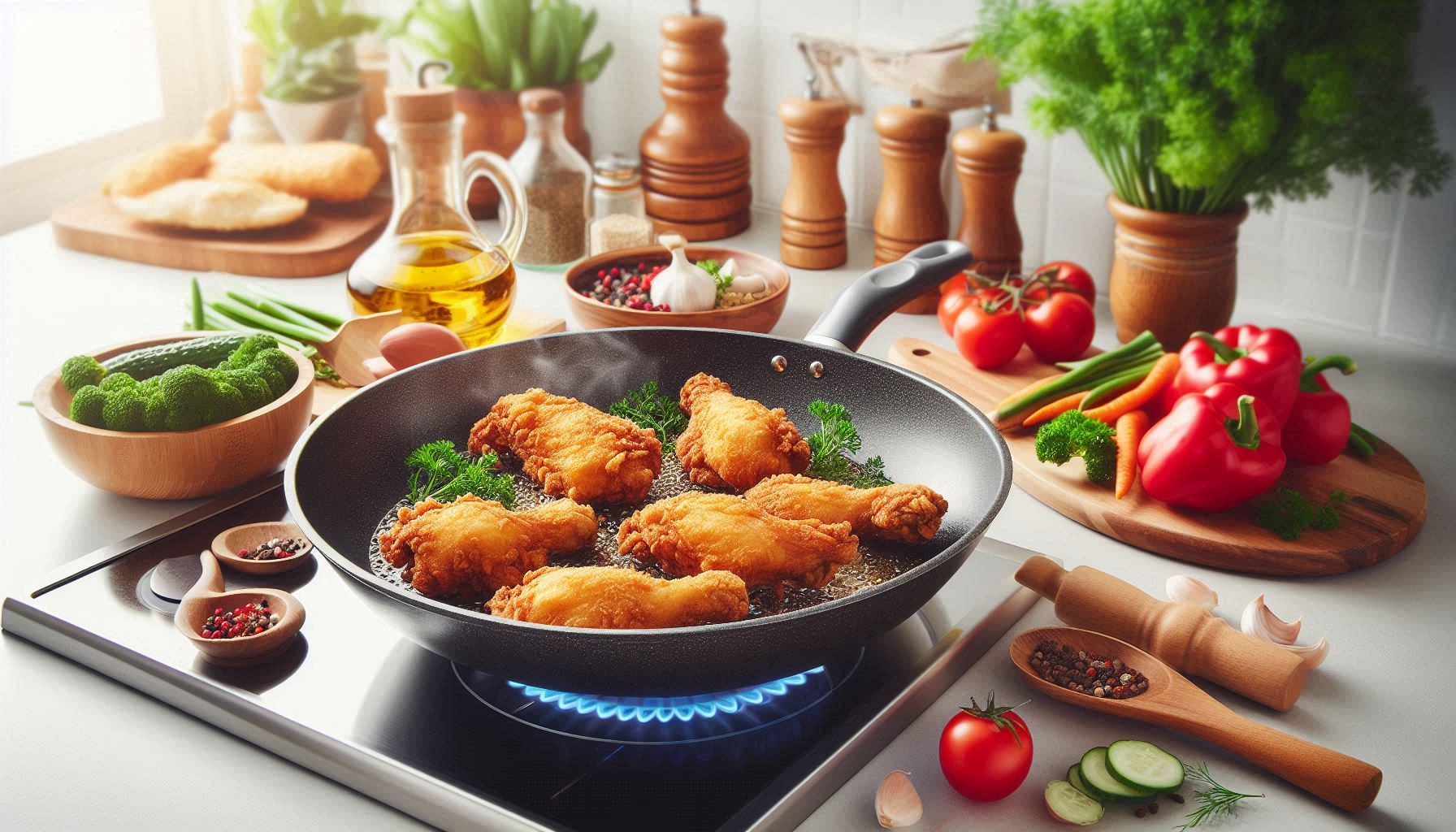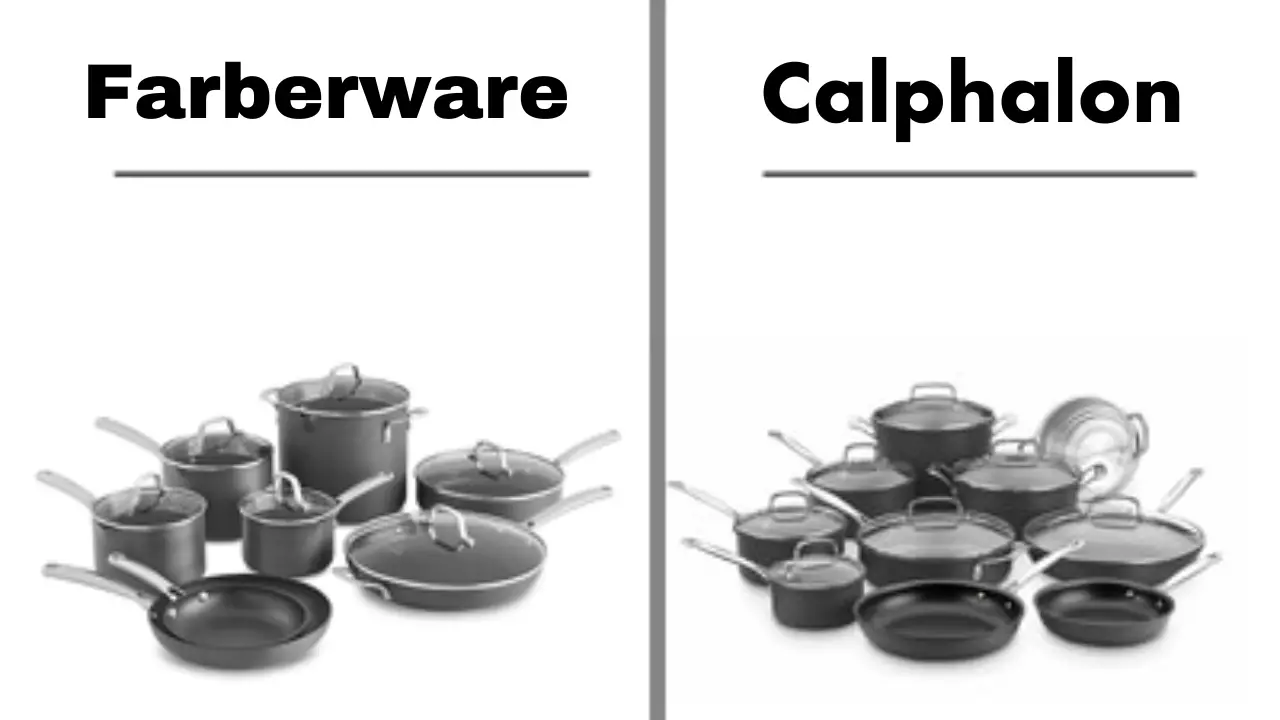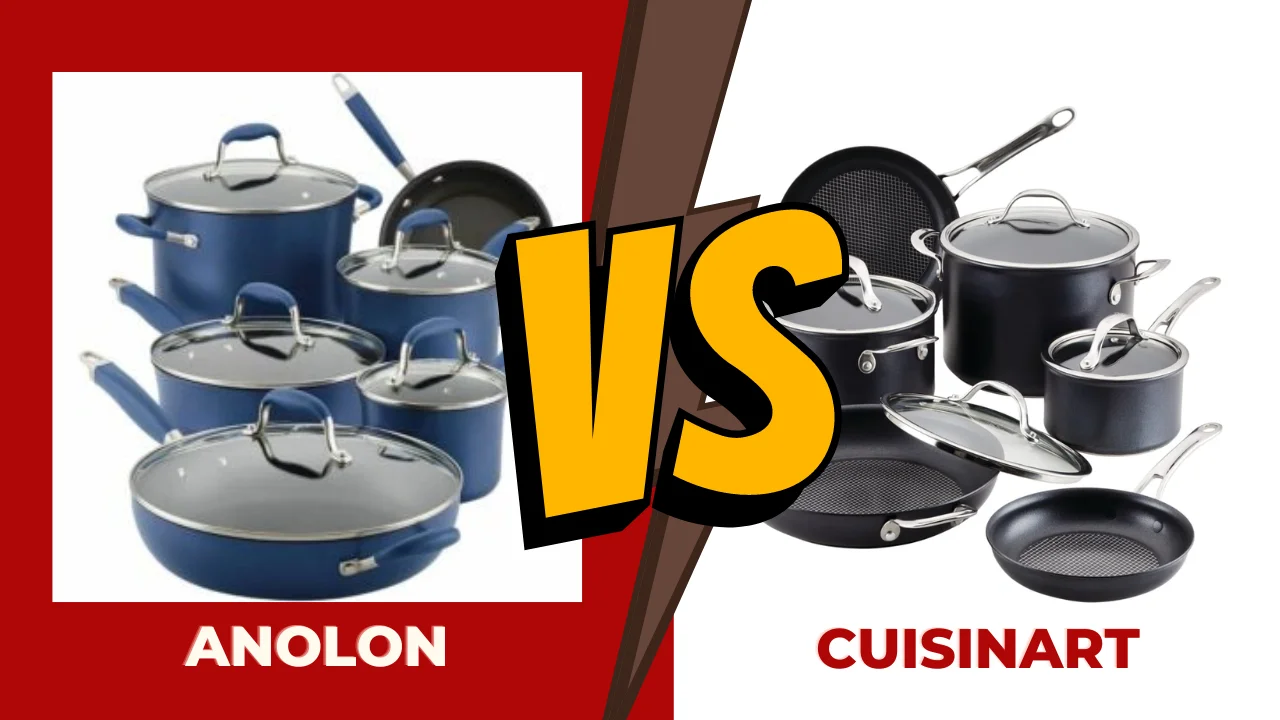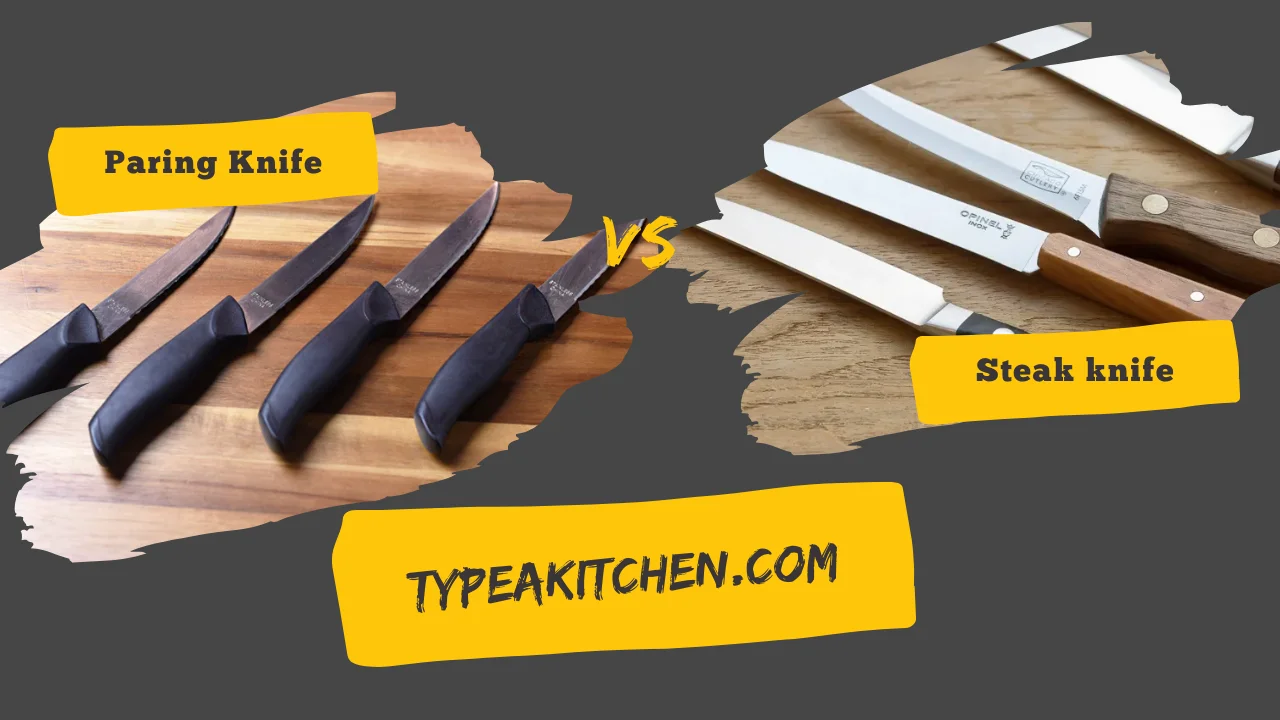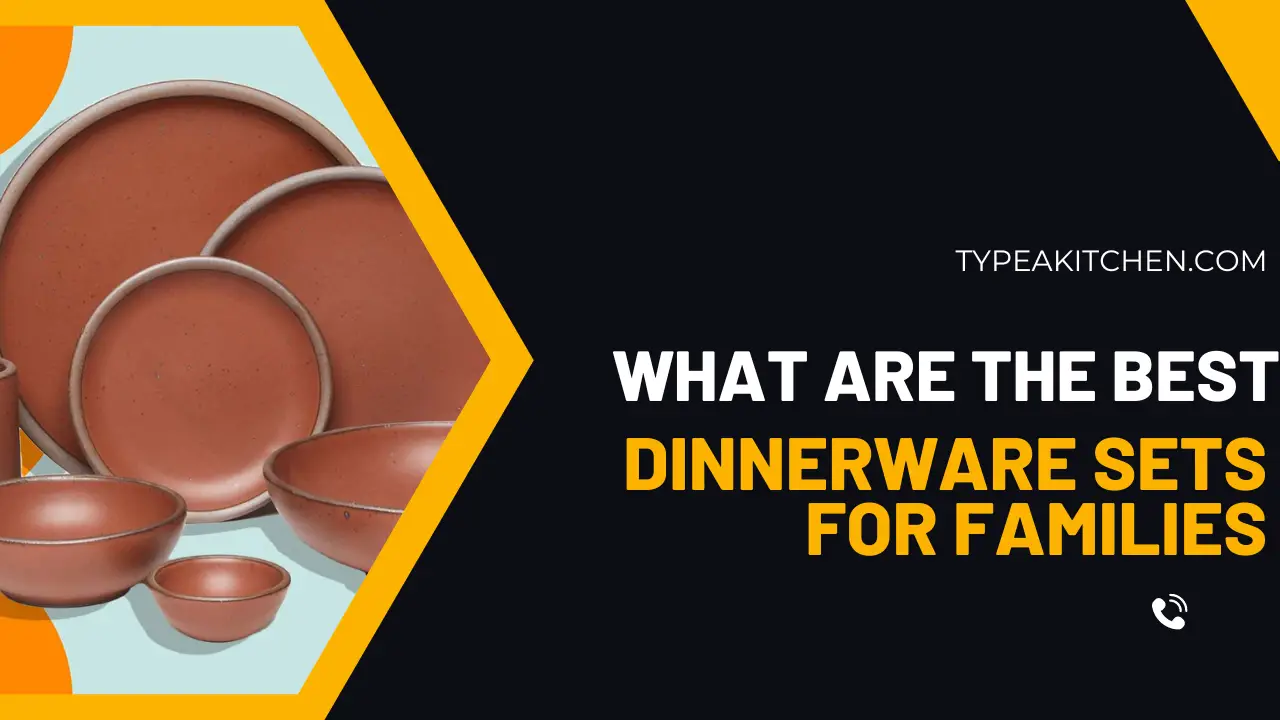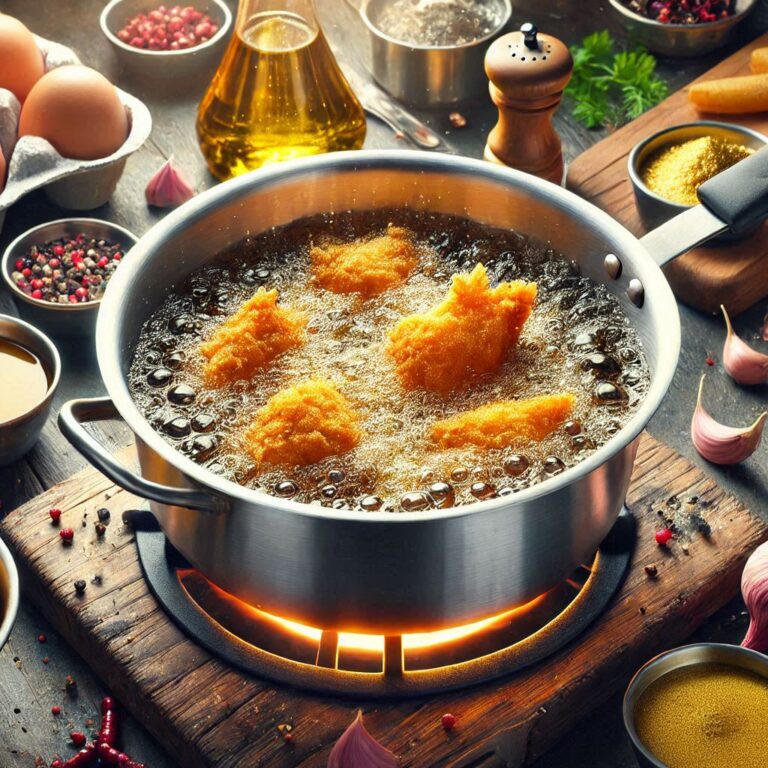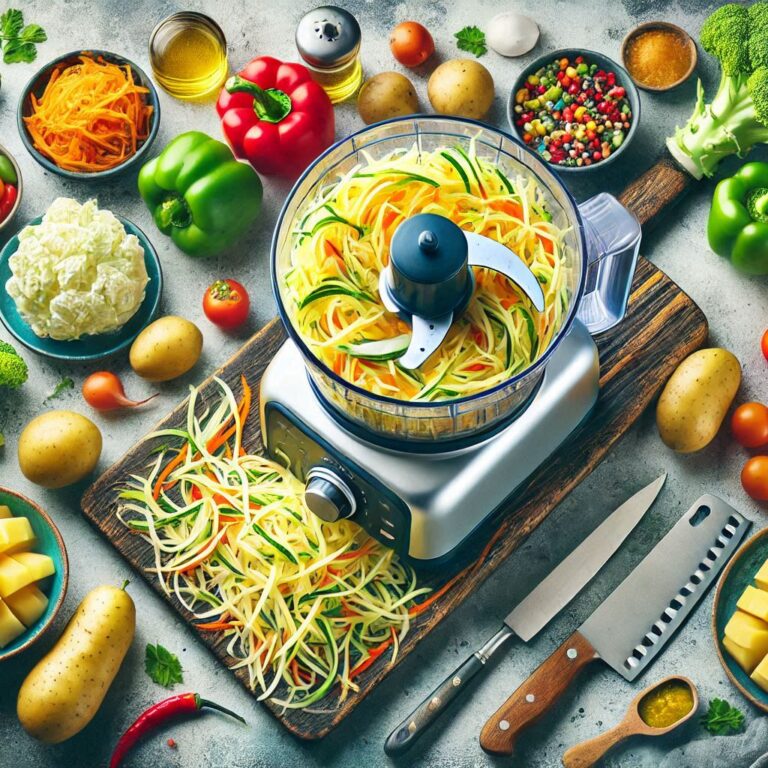Can You Fry Chicken in a Teflon pan
Teflon is a well-known brand of nonstick pans. It is also the most widely produced and utilized brand.
Teflon pans are well known for their durability. Teflon Pan’s nonstick coating is applied using an electroplating process in which the pan’s surface is covered in layers of Teflon until it is thick enough to be nonstick.
Teflon pans are far more durable than other nonstick pans. It does not flake and is considerably less prone to scratching, peeling, and wearing down over time.
Can you fry chicken in a Teflon pan?
Yes, chicken can be fried in a Teflon pan. Though the nonstick coating may scratch and wear away over time, Teflon pans are far more durable than other nonstick pans. Teflon pans are comprised of a scratch-resistant substance, so they are unlikely to lose their nonstick capabilities after being used to cook chicken.
However, if your pan begins to chip and peel after frying chicken, you should replace it as soon as possible. When cooking using Teflon pans, you can secure the highest level of safety this way.
If your old Teflon pan has worn away in any way, you should consider purchasing a new one. Even if it is still working, the nonstick coating will deteriorate over time, putting your safety at risk or wasting money.
Please keep in mind that using harsh abrasives to clean your pan will drastically shorten the life of the nonstick coating.
If you are concerned about scratching the surface, never use a Teflon pan in an oven that is hotter than 500 degrees Fahrenheit or on a stovetop burner that is hotter than medium heat. This could jeopardize the integrity and safety of your pan.
It’s best to use a Teflon pan at lower temperatures rather than over the maximum recommended level.
If you want to cook chicken in your Teflon pan, make sure not to cook it on high heat, and don’t leave the stove unattended. Assure that someone is always keeping an eye on the food as it cooks.
Can you use Teflon pans to deep fry?
Yes, you may deep fry in a Teflon pan as long as you keep the heat to medium or lower. As previously stated, your food may not be as crispy when cooked in aluminum or stainless steel, but if you only have a Teflon pan and no other options, go for it! It’s certainly preferable to repeated washing and reusing the same frying pan (which does cause some damage).
If you see changes in the color of your Teflon or parts of the nonstick coating falling into your food while cooking, stop using the pan right away because the coating is likely flaking off.
If you need to cook at high temperatures but don’t have any other options, deep fry in cast iron or stainless steel rather than Teflon.
Keep your Teflon pans away from open flames at all times, and never use metal utensils when cooking with them… they will scratch the surface!
Also, keep in mind that nonstick surfaces can only withstand medium-high heat temperatures at most. If you use maximum heat, make sure to reduce the temperature after adding the food (and reduce the heat again if it rises too high) because prolonged contact between high-heat surfaces and nonstick coatings is hazardous to both materials.
Can you fry eggs in a Teflon pan?
Yes, you can fry eggs on a Teflon pan since the coating is quite robust and will not readily scratch or peel away like other nonstick surfaces. However, using metal utensils or allowing the pan to heat up too much may increase the likelihood of scratching.
Can you cook eggs in a Teflon pan?
Yes, no matter what you cook in them, Teflon pans are extremely robust and unlikely to scratch. You may cook eggs on medium-low heat without worrying about the nonstick coating wearing away.
What is the correct way of using a Teflon pan?
It is advised to heat the pan on low or medium heat and to never leave it unattended while cooking on high.
Also, when stirring food in a Teflon pan, only use plastic or wooden spoons because metal implements can scratch nonstick surfaces. It’s also a good idea to have two sets of Teflon cookware – one for savory dishes and one for sweet dishes – because various meals produce varying quantities of residue.
Turn off the heat and allow the pan to cool before washing it, as Teflon can degrade if exposed to heat for an extended period of time. Furthermore, never use a dishwasher or high heat to dry a Teflon pan.
What if you’ve already used your Teflon pan to cook something on high heat?
If you’ve already used your Teflon pan on high heat, the nonstick surface is unlikely to be harmed. However, there is always the possibility that some of the covering has worn away or been chipped during cooking. Stop using the pan immediately if you observe fragments of the coating falling into your food while cooking.
What is a good substitute for Teflon pans?
There are many various types of nonstick pans that may be used to cook chicken and eggs, so if your Teflon pan becomes damaged in any way, you can just replace it.
What is the best way to take care of my Teflon pan?
The simplest option to keep your Teflon pan in good condition is to use plastic or wooden utensils when cooking and to let it cool completely before washing it. This will prevent you from scratching or damaging the nonstick coating.
Why is Teflon pans so dangerous?
While Teflon is a popular surface for cookware because it’s nonstick and extremely durable, chemicals from the coating can become airborne when heated above 500 degrees Fahrenheit. If enough of these substances come in contact with food, they can cause negative side effects.
Can you fry it in a nonstick wok?
Yes, nonstick fry pans are frequently used for stir-frying food because the surface is extremely robust and will not readily scratch. If you intend to use your nonstick wok like a Teflon pan (i.e., on high heat), keep it on medium or lower heat levels.
When cooking in a nonstick wok, always use plastic or wooden utensils, as metal ones can scratch the surface.
When you’re finished cooking, turn off the heat and let the pan cool before washing it to help it last longer. Never put your nonstick wok in the dishwasher or dry it on high heat.
Is Teflon Pan dishwasher safe?
No, you should never put a Teflon pan in the dishwasher since aggressive detergents can cause the coating to wear down over time. Use only mild soap and warm water to clean your nonstick pans. To avoid rusting, properly dry them before storing or using them again.
What is the best way to wash Teflon pans?
The best way to clean Teflon pans is by using warm soapy water and gentle scrubbing equipment such as sponges or soft-bristled brushes made of nylon or plastic.
Never use steel wool or metal utensils on nonstick surfaces since they will severely scratch them. When you’re done cooking, turn off the heat and allow the pan to cool before washing it, as intense heat can damage Teflon cooking surfaces.
Stop using the pan immediately if you observe parts of the nonstick coating falling into your food while cooking.
If you do not fully dry Teflon pans after washing them, they will rust.
In addition, never put a Teflon pan in the dishwasher. Not only would this damage the paint, but it may also cause corrosion if not properly dried after washing.
Can you deep fry in cast iron?
Yes, cast iron can be used for deep frying. Because you’re cooking with the pan’s seasoning rather than Teflon or another form of coating, your food may not come out as crispy as it would with a nonstick pan.
However, as long as you properly season and cleanse your cast iron skillet between oil baths, cooking fried chicken in cast iron should be completely safe.
Can you use Aluminum pans for high heat?
Aluminum pans can be used on high heat, but they cannot withstand temperature changes as well as other materials such as stainless steel, so they should never be used on both gas and electric stoves.
Overheating or rapidly cooling an aluminum frying pan can cause cracks and warping.
What is the best way to clean Teflon cookware?
The right method to clean Teflon cookware is to wipe it down with a damp cleaning rag and then properly dry it with a soft cloth. Steel wool and metal utensils should never be used on nonstick surfaces because they can scratch the surface.
Also, under no circumstances should it be placed in the dishwasher. Wipe away any excess oil and allow it to cool before washing with warm, soapy water. To avoid rusting, dry carefully with a soft cloth.
Conclusion
To summarise, Teflon pans are not a good choice for frying chicken and are not advisable to frequently use on a daily basis. A nonstick pan was not designed to endure the high temperatures required for deep frying. Stainless steel and cast-iron cookware are, of course, the best materials for deep-frying.

